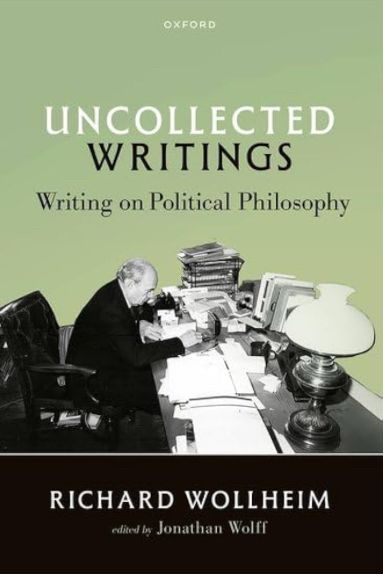
Abstract: Under the banner of progress, products have been uncritically adopted or
even imposed on users — in past centuries with tobacco and combustion engines, and in
the 21st with social media. For these collective blunders, we now regret our involvement or
apathy as scientists, and society struggles to put the genie back in the bottle. Currently, we
are similarly entangled with artificial intelligence (AI) technology. For example, software updates are rolled out seamlessly and non-consensually, Microsoft Office is bundled with chatbots, and we, our students, and our employers have had no say, as it is not
considered a valid position to reject AI technologies in our teaching and research. This
is why in June 2025, we co-authored an Open Letter calling on our employers to reverse
and rethink their stance on uncritically adopting AI technologies. In this position piece,
we expound on why universities must take their role seriously toa) counter the technology
industry’s marketing, hype, and harm; and to b) safeguard higher education, critical
thinking, expertise, academic freedom, and scientific integrity. We include pointers to
relevant work to further inform our colleagues.

Figure 1. A cartoon set theoretic view on various terms (see Table 1) used when discussing the superset AI
(black outline, hatched background): LLMs are in orange; ANNs are in magenta; generative models are
in blue; and finally, chatbots are in green. Where these intersect, the colours reflect that, e.g. generative adversarial network (GAN) and Boltzmann machine (BM) models are in the purple subset because they are
both generative and ANNs. In the case of proprietary closed source models, e.g. OpenAI’s ChatGPT and
Apple’s Siri, we cannot verify their implementation and so academics can only make educated guesses (cf.
Dingemanse 2025). Undefined terms used above: BERT (Devlin et al. 2019); AlexNet (Krizhevsky et al.
2017); A.L.I.C.E. (Wallace 2009); ELIZA (Weizenbaum 1966); Jabberwacky (Twist 2003); linear discriminant analysis (LDA); quadratic discriminant analysis (QDA).

Table 1. Below some of the typical terminological disarray is untangled. Importantly, none of these terms
are orthogonal nor do they exclusively pick out the types of products we may wish to critique or proscribe.

Protecting the Ecosystem of Human Knowledge: Five Principles
Finally! 🤩 Our position piece: Against the Uncritical Adoption of 'AI' Technologies in Academia:
doi.org/10.5281/zeno...
We unpick the tech industry’s marketing, hype, & harm; and we argue for safeguarding higher education, critical
thinking, expertise, academic freedom, & scientific integrity.
1/n
06.09.2025 08:13 — 👍 3048 🔁 1544 💬 96 📌 232

Postcolonial Global Justice by Shuk Ying Chan
A new account of global justice that recovers anticolonial thought for resisting a neocolonial age.
Postcolonial Global Justice by Shuk Ying Chan is out now (14 Oct UK pub). Learn more: press.princeton.edu/books/hardco...
21.08.2025 14:06 — 👍 4 🔁 2 💬 0 📌 0
John Locke and Irish Linen Manufacture: A New Manuscript | The Historical Journal | Cambridge Core
John Locke and Irish Linen Manufacture: A New Manuscript
📣John Locke’s Forgotten Manuscript
We are thrilled to announce that @davidrarmitage.bsky.social's
article on his discovery of a new John Locke manuscript is out now👇
It sheds new light on Locke's practical involvement in political economy & his engagement with Ireland 📜🗃️
15.08.2025 07:56 — 👍 66 🔁 36 💬 3 📌 9
Josh Cohen and I have a new (short) paper in @science.org! Researchers at Google built a "Habermas Machine" for democratic deliberation. We ask whether its knack for building agreement comes from genuine deliberative merit or from people over-trusting algorithms. philpapers.org/go.pl?aid=CO...
11.08.2025 10:15 — 👍 36 🔁 13 💬 2 📌 1

The cover of the subsequent book of the same name
6/6 See also the full issue to which this article contributed, a groundbreaking special issue (& subsequently a book) on "Conceptions of Space in Intellectual History" edited by Daniel S. Allemann, Anton Jäger, Valentina Mann tandfonline.com/toc/rgih20/3/2
09.08.2025 15:45 — 👍 8 🔁 1 💬 0 📌 0

OXFORD
UNCOLLECTED
WRITINGS
Writing on Political Philosophy
RICHARD WOLLHEIM
edited l Jonathan Wolff
With photo of Wollheim at his crowded desk.
Some will have noticed that I’ve quoted a fair amount of Richard Wollheim in the last eight years. That’s how long it has taken me to find the time to put this together: coming soon!
09.08.2025 22:11 — 👍 120 🔁 17 💬 6 📌 2

Call for Papers - Voltaire in the Baltic World: Circulations, Receptions, Legacies
5-6 March 2026, University of Tartu, Estonia In connection with an upcoming exhibition on Voltaire at the University of Tartu’s Museum of Art, and in collaboration with the Voltaire Foundation…
Call for Papers – Voltaire in the Baltic World: Circulations, Receptions, Legacies
Our colleague Sophie Turner is organising this exciting conference in Tarttu, Estonia, next year, which the Voltaire Foundation is supporting.
www.voltaire.ox.ac.uk/news-item/ca...
24.07.2025 09:41 — 👍 8 🔁 5 💬 0 📌 0

Ethics | Vol 135, No 3
The April 2025 issue of ETHICS is now available on the University of Chicago Press site: www.journals.uchicago.edu/toc/et/2025/... #philsky #PolTheory #legalphil #moralphil #moralphilosophy #legalphilosophy
18.03.2025 14:28 — 👍 10 🔁 1 💬 0 📌 0
- Isaiah Berlin in "Two Concepts of Liberty"
19.02.2024 20:23 — 👍 1 🔁 0 💬 0 📌 0
"..when ideas are neglected by those who ought to attend to them -that is to say, those who have been trained to think critically about ideas- they sometime acquire an unchecked momentum and an irresistible power over multitudes of men that may grow too violent to be affected by rational criticism"
19.02.2024 20:22 — 👍 6 🔁 0 💬 2 📌 0

The Cambridge Companion to Rousseau's Social Contract
Cambridge Core - Political Philosophy - The Cambridge Companion to Rousseau's Social Contract
1) It's book release week for "The Cambridge Companion to Rousseau's Social Contract," which I have co-edited with my colleague, Matthew W. Maguire.
19.02.2024 15:34 — 👍 9 🔁 3 💬 1 📌 0












